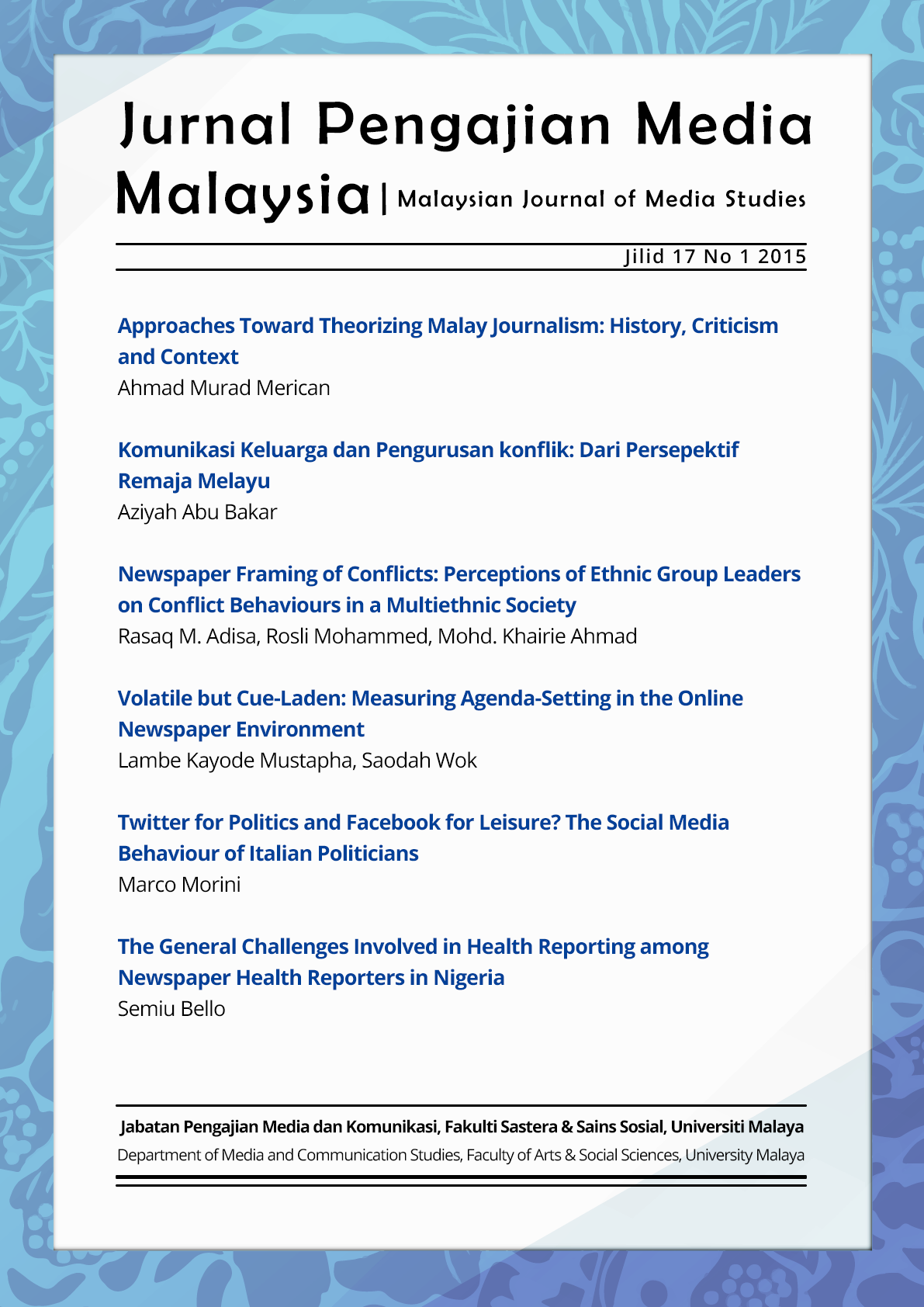Newspaper Framing of Conflicts: Perceptions of Ethnic Group Leaders on Conflict Behaviours in a Multiethnic Society
Main Article Content
Abstract
Multiple forces contribute to and influence the course of ethnic conflict in developing and multi ethnic societies. In Nigeria, media reporting and ethnic group leaders play very important roles in determining the course and severity of ethnic conflict. However, little research has been done examining both the roles played by ethnic group leaders and newspaper framing in influencing interethnic conflict in Nigeria, despite the growth of conflict studies. Within the community of conflict researchers, little work has been done to understand ethnic group conflict behaviors and media reporting as mutually influencing factors in ethnic conflict. This study aims to address this gap. Through in-depth interviews with 26 ethnic group leaders, this study explores how they view media and leaders’ roles in influencing violent interethnic conflict in Nigeria. Interview data were analyzed thematically using NVivo 8 software. Study findings suggest that ethnic group leaders tend to blame the press, the government and ethnic group attitudes. Specifically, the leaders fault the press for inflammatory reporting, name calling, double standards and for heavy ownership influence and ethnic interest. They hold government, both past and present, responsible for their failure to unify Nigerians. Interviewees agreed that although media reports have influenced their decision and actions at one time or the other, individual impunity among ethnic group leaders is also a serious cause of conflict. political system of this region.
Downloads
Article Details

This work is licensed under a Creative Commons Attribution 4.0 International License.
